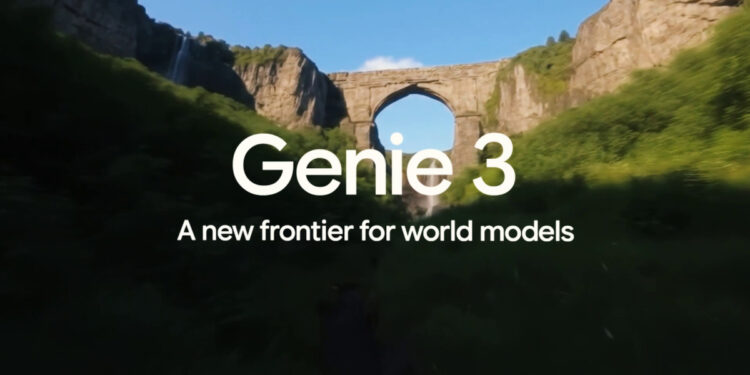Google DeepMind is close to releasing Genie 3, an AI system that lets users interact with generated video worlds running at 720p and 24fps. What makes it stand out is that the AI only remembers what happened for about one minute, which limits the experience but still allows some live interaction.
It’s an interesting step forward from earlier AI experiments that produced chaotic or nonsensical environments. For example, Microsoft’s AI-generated Quake 2 demo was more nausea-inducing than playable. Genie 3 aims to be more consistent over several minutes, with a visual memory that extends up to one minute in the past. Users can prompt events in real-time, like adding a person in a chicken suit, a jetski, or even a dragon to the scene.
What if you could not only watch a generated video, but explore it too? 🌐
Genie 3 is our groundbreaking world model that creates interactive, playable environments from a single text prompt.
From photorealistic landscapes to fantasy realms, the possibilities are endless. 🧵 pic.twitter.com/P0cwFvf5d2
— Google DeepMind (@GoogleDeepMind) August 5, 2025
Google suggests some use cases like training other AI agents in these simulated worlds or educational purposes, such as exploring ancient Greece or seeing dinosaurs. But these scenarios come with a big asterisk. Since the AI tends to hallucinate details, the accuracy and reliability of such educational experiences are questionable. Teaching something as serious as search and rescue planning through a hallucinated AI simulation feels a bit risky, doesn’t it?
🔘 Promptable world events
Beyond navigation, users can insert text prompts to alter the world in real-time – like changing the weather ⛅ or introducing new characters 👤
This unlocks a new level of dynamic interaction. pic.twitter.com/vvy9U2KOav
— Google DeepMind (@GoogleDeepMind) August 5, 2025
Honestly, Genie 3 looks impressive at first glance, but I keep wondering about the real value beyond being a flashy, energy-hungry toy. Video games have been able to remember and build complex worlds with player actions for decades. And they do it more efficiently and with far more intentional design. Why would anyone pick a one-minute memory AI environment over a carefully crafted game?
Cost is a significant factor. Generative AI requires enormous computing power. For example, Replica Studios reportedly spent $1,000 per day just to run 100,000 lines of dialogue in its AI demo before shutting down. Google can afford massive expenses, but it still wants returns. That’s probably why Genie 3 is only available to a small group of academics and creators for now.
Games are created by people with clear goals, crafting specific feelings and mechanics. The finesse needed to make a parry feel satisfying or a story emotionally impactful is something AI just can’t fake right now. Generative AI in game development has been chiefly used for quick experiments, placeholder text, or background textures, not the kind of depth players crave.
Larian CEO Swen Vincke put it well: even if AI tools become widely available and good, everyone will have them. The real challenge is creating something special on top of that.
Imagine a future where Genie 3 can run efficiently, remember hours of player actions, and create infinite worlds. Would those games be better? Maybe not. I’ll stick with Baldur’s Gate 3 and its carefully crafted storytelling and gameplay.
What do you think about AI-generated interactive worlds with such limited memory? Could they ever replace traditional games, or are they just a curiosity? Feel free to share your thoughts in the comments below.

























